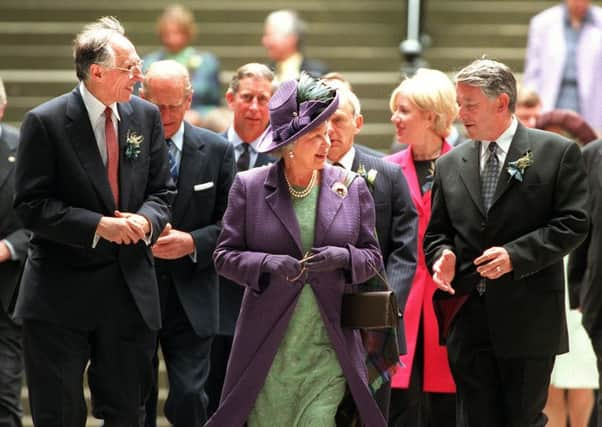Leader comment: Poor well-being report doesn't make Parliament a failure


We have the First Minister warning that, under the EU Withdrawal Bill, Westminster could hold on to powers that should be devolved, a view rejected by the UK government, which insists no powers will be lost and Holyrood will have more responsibilities than before.
Of course, Nicola Sturgeon’s stance is taken in the name of standing up for Scotland, and while she is accused of conducting grievance politics, it is significant that Scottish Labour also fears a “Westminster power grab”. If Labour thought the First Minister was manufacturing division, it would be calling her out.
Advertisement
Hide AdAdvertisement
Hide AdBut how much this matters to the average person is a different question, and is likely to remain that way until there is proof that the original devolution agreement is being reneged upon. If there’s delay before powers reach Scotland, then so be it. The principle of devolution – that powers are devolved unless explicitly reserved – was not drawn up with the uncharted territory of Brexit in mind.
What difference this make to the life of the average person is another question. Voters are more likely to ask why existing powers have not all been used. They might also point to today’s report from the Organisation for Economic Co-operation and Development (OECD) which shows that, over a decade, Scotland has dropped four places in an international league table of social and economic well-being.
The figures take into account GDP per capita, school age attainment levels, life expectancy at birth and the employment rate – areas where we would hope that the existence of the Scottish Parliament has helped to make a positive difference.
The Conservatives say this is a “damning indictment” of the SNP’s time in government. Perhaps it is. But we should not confuse the performance of the Scottish Parliament with that of the Scottish National Party. Although this is the 20th anniversary of its creation, the Parliament remains a work in progress. Even two decades on, it cannot be expected to be the answer to all of Scotland’s problems, regardless of who holds power.
The public needs more evidence of Holyrood’s powers being used more effectively than the OECD report indicates – but that does not, as some would argue, make the Parliament itself a failure.